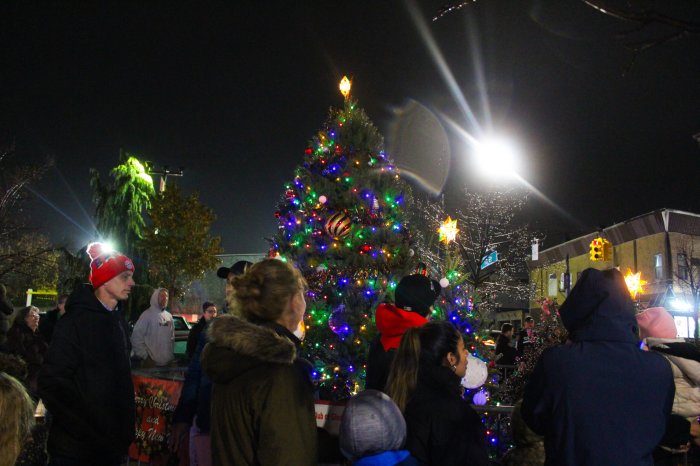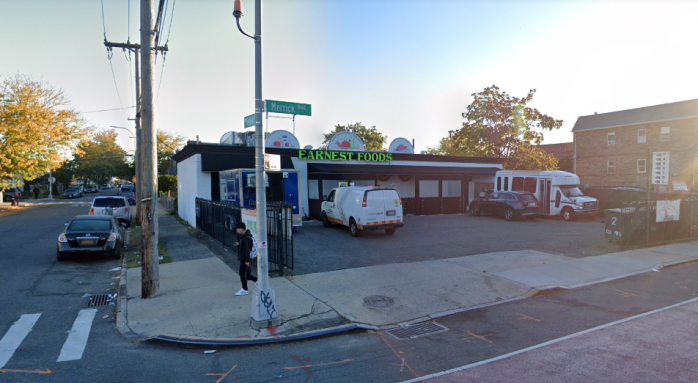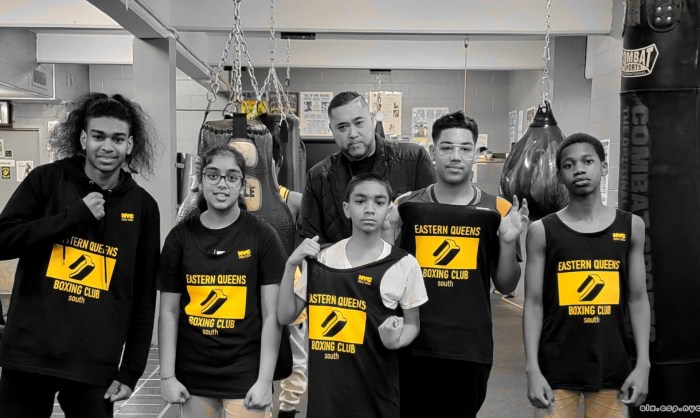When the Rev. Jeffry Dillon joined the priesthood, he never imagined that his duties would require an expertise in the minutiae of the petroleum industry.
Yet, for the last two and a half years, he and Sr. Mary Ann Ambrose of Springfield Gardens Christ the King Church have had to acquire just such an expertise, as they attempt to understand the dangers that lurk beneath the church’s rectory in the form of a gaseous plume.
A decade ago, gasoline laden with a toxic chemical known as MTBE (methyl tertiary butyl ether) leaked from a Mobil station about 1,000 feet from the church, on Farmers Boulevard. The gasoline slowly migrated away from the station, and in 2002, a series of "geo-probes" of groundwater under the church and rectory found MTBE, a known carcinogen, at levels of 13,000 parts per billion, when state government standards place a safety limit of 10 parts per billion for the chemical.
The circumstances surrounding the leakage are murky. Barry Wood, a spokesman for ExxonMobil, is careful not to use the word "spill," instead calling the problem a "product release" whose origins are uncertain. He says that the petroleum company has been "aggressively" approaching the ongoing clean up using a sophisticated filtering system for the groundwater while it keeps in close contact with both the church and the state Department of Environmental Conservation (DEC).
Wood also notes that the MTBEs are not an immediate danger to churchgoers or local homeowners, since groundwater does not mix with drinking water.
Rev. Dillon, Sr. Ambrose, and their legal team, however, paint a very different picture.
"It’s a catastrophic release of pollution," said Walter Hang, president of Toxics Targeting, a company that has been compiling the data gathered from ExxonMobil’s probes for the church’s lawyers.
The church discounts ExxonMobil’s claims of cooperation, accusing the gas giant of being forthcoming about almost nothing. Rev. Dillon says that he and Sr. Ambrose have had to expend a great deal of effort to comprehend the complexity of the situation, at the expense of their pastoral duties.
"This has become like a full-time job," Sr. Ambrose said. "I was not hired to be a gas expert when I joined the parish."
Last week, Christ the King Church announced that it is suing ExxonMobil for more than $2 million.
Rev. Dillon first learned of the gas leakage when ExxonMobil officials visited him toward the end of 2000 to ask for permission to drill monitoring wells on church property, based on suspicions that leaking gasoline had spread well beyond the grounds of the Mobil station.
"I told them, if you’re here with a suspicion, you already know that the spill has affected our property," he said.
Despite his misgivings, he allowed the crews to do their work. The extent of the problem did not become readily apparent until August 2002, when the DEC discovered that a worrisome amount of gasoline had gathered in the ground adjacent to the basement of the Herbert Birch Early Childhood facility, a church-owned building next to the Mobil station, and across the street from the church itself.
According to DEC spokesman Matt Burns, the state agency ordered ExxonMobil to begin a thorough investigation and clean-up immediately. The state Department of Health tested the air quality in the childhood center, and it did not find any gaseous vapors.
To date, there have been no complaints about gas odors or seepages in the center, says Burns. And, according to Wood, ExxonMobil has cleaned half of the MTBE contamination from below the church, bringing the level to about 6,500 parts per billion.
But Walter Hang fears that the danger is being seriously underestimated. He argues that the petroleum company has focused its probing and monitoring to only a few sites, and has not examined groundwater further down Farmers Boulevard or directly under the early childhood center.
"There’s no telling how far the plume has spread," he said.
Hang also says that the groundwater may present a much greater problem than ExxonMobil is willing to admit. Excessive rain could cause the contaminated water to run to the surfacea disturbing scenario for Christ the King, whose parishioners meet in the church’s basement.
Hang describes the company’s current clean-up procedure as inadequate, since MTBE can travel easily, and far, through soil. The dirt itself, and not just the groundwater, needs to be removed and run through a filtering system, he says.
"When you have free-floating gasoline, every alarm bell should be going off. You have to act quickly, because delay can make a clean up impossible."
But ExxonMobil spokesman Barry Wood notes that his companys clean-up plan has already been approved by the DEC.
"Were paying for the clean-up in total," he said. "Were surprised and disappointed that the church has gone in the direction of a lawsuit."
Rev. Dillon says that the church’s lawsuit is not about winning money from ExxonMobil. He sees it as a way to push the company to remove the MTBEs as quickly as possible, while keeping the church and locals genuinely informed about the process.
"I have to defend this parish and this community," he said.



































